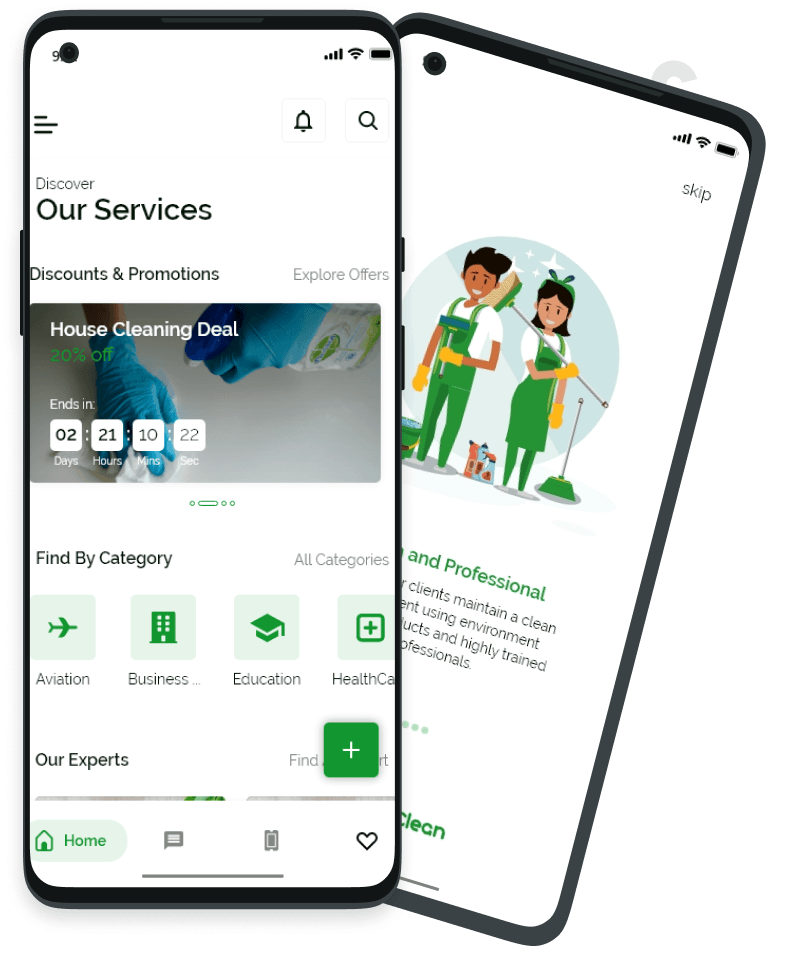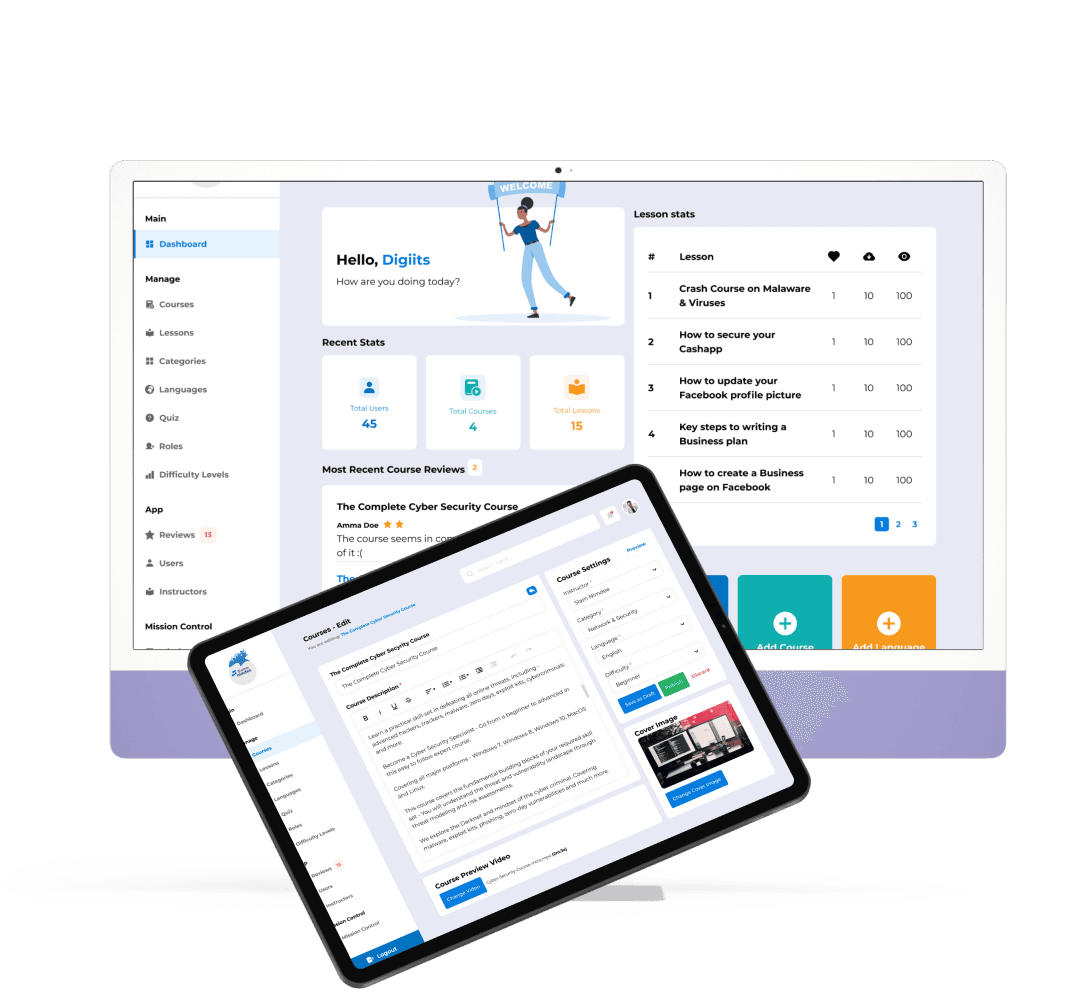Quality Assurance
Excellent quality is non-negotiable – it simply must come as standard. Nobody wants to get derailed by bugs, so we’ve developed a way of working that delivers everything to exceptionally high standards.
What we do
AUTOMATED TESTING
Our 'automate everything' culture keeps manual testing to an absolute minimum. Continuous Integration and Deployment means we take advantage of test farms, using BrowserStack or SauceLabs to make execution easier. Cloud testing platforms allow us to ‘rent’ real devices, simulators, and machines with different browsers, giving us access to a huge amount of information during and after testing.
MANUAL TESTING
We go manual when automation is prohibitively expensive, less effective, or simply impossible. Some elements and interactions are best checked with the human eye, while exploratory testing is often the fastest way for a software tester to fully understand how something functions.

WHY IT WORKS SO WELL
More than just a mobile app development company: Digiits is a partner that helps you catapult your business by designing mobile experiences that accelerate growth.
Quality that enterprise-level software demands
We understand the complex requirements of the world’s largest brands, and we’re trusted by leading enterprises to deliver to the highest standards.
Analytics and crash monitoring
We’re smart about implementing analytics at the design stage so you get a wealth of measurements to learn from when the software is up-and-running.
We’re rigorous about Test Plans
We map out exactly how and when tests are carried out, accurately allocating time during each sprint, alongside regression plans and test cases to be covered manually.
Continuous testing
We’re always testing, fixing issues early in development and integration, catching quality and security concerns before production. Faster, easier and cheaper than dealing with problems after deployment.

Selenium for web automated testing
This is great for running tests on different OS and browser versions.

Appium for mobile automated testing
This allows us to establish connection to mobile devices using WebDriver protocol.

BrowserStack for web automated testing
Farms help us improve quality by testing across an extensive range of desktop browsers and real mobile devices.

Spectron for Electron automated testing
This open-source framework is effective for writing integration tests, setting up and tearing down the app, and allowing it to be test-driven remotely

Postman and Charles for API testing
Our preferred way to streamlining collaboration between testers and developers so we can create, test and deploy better APIs, faster.
Our Work
We love working with many fantastic companies and are really proud of what we’ve achieved together.


Still unsure about something?
Don’t worry, whatever it is, we’ve got you covered in our FAQ.
Yes. In today’s environment, being agile is one of the most important things. Being agile doesn’t mean a lack of processes, but rather the opposite. Having good efficient processes and a strong working methodology helps us to be agile and at the same time organized and predictable.
Yes, we also do maintenance. We see that as continuous work after the first version is published. Releasing the first version of a software product is just the beginning. Our belief is that the real work begins after launch. So we strongly encourage you to plan your budget so you can have a dedicated team working on your project after launch (this could be in reduced capacity). This option gives you confidence that the team monitors how the project behaves in the real world and acts quickly based on the data from the field. Also, to create a successful product, you should iterate it based on the usage analytics – your users know best what they need.
Native apps, as the name suggests, are used to build apps for a specific platform – iOS or Android – and so the programming language used would differ based on the platform. For native Android app development, developers program with languages such as Java or Kotlin. For native iOS app development, we have a choice of Swift or Objective-C. As the native apps are written for a specific platform, they are more responsive, faster, and perform better in terms of animations. Native apps are also preferred over cross-platform apps when data protection and security is crucial. Cross-platform apps, also known as hybrid apps, are coded once and run on multiple platforms. We can use different technologies to develop hybrid apps like React Native, Flutter, Xamarin, and Ionic to code the mobile app, using a browser supported technologies such as Html, CSS, JavaScript. Hybrid apps have their own advantages like a single code base, overall lower development cost, easy maintenance, and faster delivery.
Some of the most common errors in Android development that others do but we don’t: Memory leaks by passing context to async tasks Performing background work on the main thread, blocking the main thread Developing UI without taking into account different screen dimensions and densities Using view hierarchy that is too deep.
While the answer isn’t simple, but it isn’t as convoluted as many developers make it seem. Many app developers will either build you a subpar app for a lower fee — you get what you pay for — or get you in the door at a low price only to invoice you 5x the original estimate down the road. What you rarely see is a realistic depiction of what an app costs and how that’s calculated. When you initiate a conversation with Digiits and explain your ideas and goals, we walk you through what’s needed to execute and the exact costs to build a premium mobile app for iPhones.
It all depends on what stage of your product roadmap you are on. Are you looking to build an MVP (minimum viable product) to show to potential investors or have a clear vision and product market fit already? All our engagements start with a crystal clear timeline based on agile development methodologies. Our clients get to see the work in progress builds every step of the way so you have full visibility of our engineering process. On average, time to build a premium quality app ranges between 3 to 6 months depending on your feature set and roadmap.
